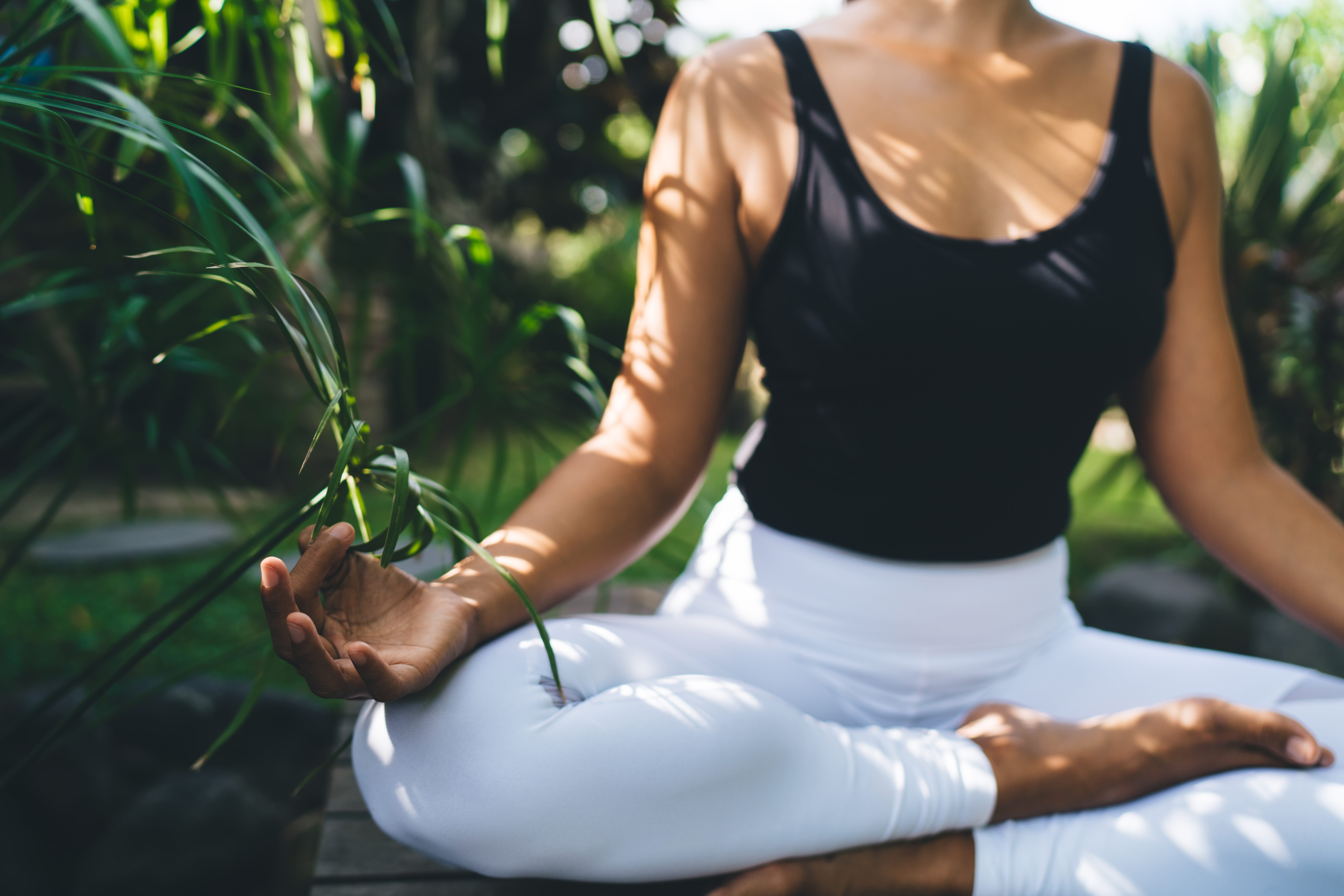Yoga is not just a physical exercise. It’s a comprehensive lifestyle philosophy that promotes a healthy mind, body, and spirit. The poses, or asanas, tone your muscles and improve your flexibility while facilitating a deeper connection with the self. As you move from one asana to the next, you’re encouraged to tune into the sensations in your body, the rhythm of your breathing, and the ebb and flow of your thoughts and feelings.
The Neuroscience of Yoga and Mental Health
There are several research studies that suggest that regularly practicing yoga can reshape the brain and nervous system in ways that promote improved mental health.
For example, studies have shown that a regular yoga practice can increase levels of gamma-aminobutyric acid (GABA) in the brain. GABA is a neurotransmitter that helps to calm neural activity and regulate mood. Low levels of GABA have been linked to conditions like anxiety and depression, so this is an important benefit when you are struggling to manage your mental health.
Yoga has also been found to reduce the production of cortisol. Chronic exposure to cortisol can have detrimental effects on both your physical and mental well-being, contributing to everything from inflammation to cognitive impairment. By consciously turning inward through yoga, you can short-circuit the body’s stress response and move toward a greater sense of inner peace.
Finally, yoga has been shown to increase activity in the prefrontal cortex. This is the area of the brain responsible for higher-order cognitive functions like decision-making, emotional regulation, and behavioral control. Enhanced prefrontal cortex activation has been linked to improvements in symptoms of depression, anxiety, and PTSD.
A Simple Yoga Routine to Support Your Mental Health
Getting started with yoga doesn’t need to be difficult or time-consuming. Here, we’ve provided a simple yoga routine focused on improving your overall mental health. This routine should take roughly 20 minutes to complete, which makes it an ideal way to either start or end your day.
Centering and Breath Awareness (Sukhasana – Easy Seated Pose)
This opening pose allows you to take a moment to turn inward and become aware of your breath. Breath awareness can have a profoundly calming effect on your mind, helping to quiet intrusive thoughts and promote a sense of mental clarity.
Here’s how you perform this simple yoga pose:
- Sit comfortably on the floor with your legs crossed. (You can also sit in a chair.)
- Close your eyes and bring your attention to your breath.
- Observe the inhalations and exhalations without trying to control them.
- Take deep, cleansing breaths for up to two minutes before moving into the next pose.
Child’s Pose (Balasana)
As you transition into Child’s Pose, you’ll experience a feeling of safety and comfort. This gentle forward bend has a soothing effect on the nervous system, and the act of curling into yourself can evoke a sense of self-care and self-acceptance.
Here’s how you perform this simple yoga pose:
- Kneel on the floor, then sit on or between your heels. From there, slowly lower your torso towards your thighs.
- Stretch your arms out in front of you, palms on the floor.
- Allow your forehead to gently rest on the ground.
- Breathe deeply, feeling your belly expand on the inhale and contract on the exhale.
- Hold for up to four minutes, taking your time to fully relax.
Supine Spinal Twist (Supta Matsyendrasana)
The Supine Spinal Twist is a calming pose that promotes physical and mental release. This gentle twisting action helps to release muscle tension while also providing a sense of balance and equilibrium.
Here’s how you perform this simple yoga pose:
- Lie on your back with your knees bent and feet flat on the floor.
- Gently allow your knees to fall over to the right, keeping your shoulders on the mat. You can prop your knees on a pillow or block as needed.
- Extend your arms out to the sides in a T-shape.
- Hold the pose for one to two minutes, then repeat the movement on your left side.
Legs-Up-the-Wall Pose (Viparita Karani)
By elevating your legs against a wall, you allow the blood to flow back toward your heart. This inversion promotes a sense of calm by gently stimulating the parasympathetic nervous system, which is responsible for your body’s rest and digestion functions.
Here’s how you perform this simple yoga pose:
- Position your body so your hips are against a wall and your legs are extended up the wall.
- Allow your arms to rest by your sides or on your abdomen.
- Breathe deeply and relax fully into the pose.
- Hold the pose for up to three minutes.
Supported Backbend (Supta Ustrasana)
The Supported Backbend encourages deep relaxation. As you perform this yoga pose, surrender to the support beneath you and let go of any tension or stress.
Here’s how you perform this simple yoga pose:
- Lie on your back with your knees bent and feet flat on the floor.
- Place a bolster or stack of folded blankets under your back to support your spine.
- Allow your arms to rest by your sides or reach them overhead.
- Relax your muscles and breathe deeply.
- Hold the pose for up to minutes.
Corpse Pose (Savasana)
Corpse Pose is the final and perhaps most important pose in our yoga sequence. It cultivates mindfulness, self-compassion, and overall emotional well-being.
Here’s how you perform this simple yoga pose:
- Lie flat on your back, legs extended, and arms by your sides. A pillow under the knees may help your back relax.
- Close your eyes and focus on your breath, allowing your body to completely relax.
- Mentally scan your body, releasing any lingering tension.
- Remain in this pose for the last four to five minutes.
The Path to Greater Well-Being
Yoga is just one part of the path to greater well-being. At Eagle View Behavioral Health in Bettendorf, Iowa, we provide a full range of support services to help our clients unlock a deeper level of emotional resilience, self-understanding, and engagement with life. Contact us today to learn more or to request a free, confidential assessment.







